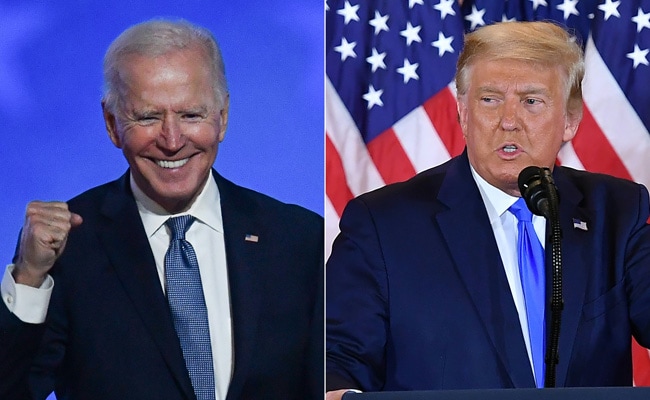
Pictures from the history book have been circulating on social media.
Russian students are learning a controversial version of US history, as per a report in Newsweek. A new textbook claims Donald Trump lost the 2020 election due to widespread Democratic voter fraud-a claim repeatedly debunked by courts and election officials. Social media is abuzz with images of the textbook pages, sparking a huge debate.
This textbook twist comes as Trump and his allies face legal challenges related to the January 6, 2021, Capitol riot, an event that stemmed from his refusal to accept the election results. These new books allege that President Joe Biden’s entire political career has been marked by corruption scandals and assert that he and his family hold commercial interests in Ukraine.
Konstantin Sonin, a Russian economist and University of Chicago professor known for his writings on Russian politics, also disseminated false claims from the Russian textbook about the 2020 election on X.
The Reverse Cargo Cult it is. The new World History textbook for high schools in Russia quietly informs kids that Donald Trump was denied presidency in 2020 as a result of “obvious falsifications” by the Democratic Party. The “reverse cargo cult” is a staple of authoritarian… pic.twitter.com/3sztTO7C7c
— Konstantin Sonin (@k_sonin) December 26, 2023
He shared the images of the pages of the book on X and wrote in the caption, “The Reverse Cargo Cult it is. The new World History textbook for high schools in Russia quietly informs kids that Donald Trump was denied the presidency in 2020 as a result of “obvious falsifications” by the Democratic Party.”
He further defined “The Reverse Cargo Cult” and wrote, “The “reverse cargo cult” is a staple of authoritarian propaganda. Under the “cargo cult,” the locals believe that imitating elections will bring as much prosperity as real elections in democratic countries. Under the “reverse cargo cult,” the locals believe that the fact that their own elections are fake means that elections in democracies are fake as well.”

Add image caption here
Mr Sonin told Newsweek that he didn’t doubt the authenticity of its contents and that the book’s publication was announced earlier this year during a press conference by the book’s authors and Sergei Kravstov, Russia’s minister of education.




